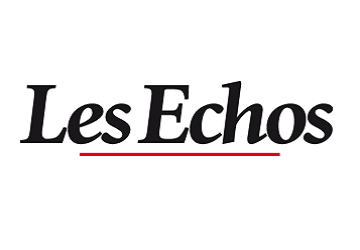
The opinion of Olivier Klein, published in Les Echos. 28th july 2016.
Beyond the customer relationship, the digital revolution has positively disrupted the organisation and managerial system in companies. However this will not lead to their disappearance, quite the contrary.
The traditional company organisation, with its top-down information circuit, its centralised decision-making process and very hierarchical relationships, has long demonstrated its effectiveness. The need for innovation and agility, combined with the influence of digital technology on behaviours, challenges this organisation, which now appears too restrictive to quickly adapt to changing customer and market dynamics, as well as changing dynamics among employees themselves.
New organisational models based more on collaboration, are emerging, induced and facilitated by the development of digital technology. A more “horizontal” mode has taken over, which favours project type work and direct lateral relations between employees without systematically going through the top of the pyramid. A manager’s power is no longer based on holding information, which flows freely. His mission is now to convince and unite a community of actors, who seek more autonomy, around issues relevant to the company. His job is no longer to be behind employees to supervise them, but to be in front of them, to orchestrate and energize teams. These developments are favourable to employees, for their interest and pleasure at work, and businesses to ensure better responsiveness and adaptability in an ever changing and uncertain world.
But some go further. They imagine that the company will fully transform, thanks to digital technology, into a form of community cooperation, which requires building a relational model open to a host of contributors, internally and externally. This is evidenced by the fact that we are working increasingly on the move, from home, in “co-working” spaces as freelancers or outside, for example during hackathon events. Some models, even more pure, are already appearing, where freelancers coordinate remotely; a way of “Uberizing” the organisation of work. The dominant model in the future, they say, will no longer be the wage system. The company as we know it today will give way to a more nebulous form of organising, temporarily associating individuals free of subordinate ties, as there are projects to be carried out.
To me, this vision does not reflect reality. The future, in my opinion, should not side-line the company as a form of organisation for at least three reasons. First, the development of the virtual company collides with the need for social contact that particularly enables work. Each of us feels the need to belong to a community of people, to a team in which one occupies a specific place to carry out a collective project. Purely collaborative forms of work respond poorly or not at all to this need for social contact. The second reason is that “uberisation” can only work in certain contexts. Many activities require a stronger structure, material and technical infrastructure, supervision, and a division and of tasks that are incompatible with only temporary collaboration. Last reason: The increased need for individual autonomy linked to the development of digital technology still requires training throughout one’s professional life. The company can ensure this training is provided. It is doubtful that virtual forms of organisation can do so. For all these reasons, the company is unlikely to lose its prominent place.
If this is the case, the future of the company will depend on its ability to change the balance between its two organising principles. First principle: the necessary order and hierarchy between its different parts to ensure its continuity, by compliance with standards and rules and the flawless operation of its management routines. The second: autonomy of its parts, their empowerment and their entrepreneurial capacity needed to survive serious disruptions. They provide the necessary adaptability of the organisation. The right combination of these two elements enables the company to be neither self-dissipative like smoke nor breakable like crystal during large shocks, as Henri Atlan says of living organisms. Proper management of these two principles should, in the digital world, move the cursor to more autonomy, of working as a network – rather than vertically,-and more empowerment.
If it makes these organisational and managerial changes well, the company thus challenged and forced to move by digital technology, will certainly have more bright days ahead, and be more motivating for its employees and more resilient to shocks.
